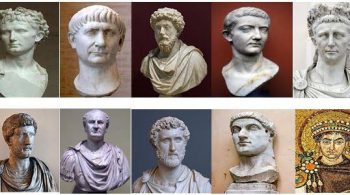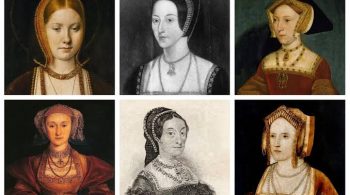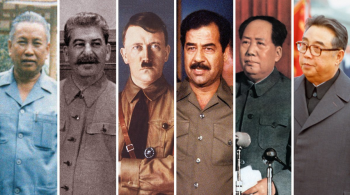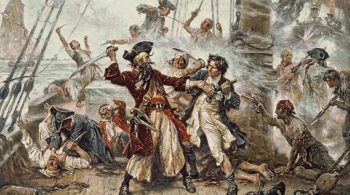Snipers are and have always been a crucial part of battle since they are well-trained and lethal. However, the phrase was first used to describe hunting. It was for the extremely elusive snipe bird in British India in the 1700s. A sniper in today’s world is an expert sharpshooter.
As early as the American Revolution, snipers were used. They participated in combat during World War 1, typically in the trenches.
Snipers were no exception to how different World War II was from other aspects of the conflict. Particularly in the Soviet Union. According to this top 10 ranking of the deadliest snipers, the USSR seemed to have mastered the art.
During the Second World War in particular, these capable and expertly trained marksmen emerged as a vital and impressive force. It was especially among the Eastern Front.
In reality, the USSR was the only nation in the world before WW2 to give sniper forces specialised training. Their dominance in this field demonstrates unequivocally that their devotion was worthwhile.
Military snipers receive training in camouflage, infiltration, surveillance, reconnaissance, as well as a number of other crucial skills. In 1943, there were about 2,000 active female Soviet sharpshooters on the ground. The SU recruited snipers during WWII before many other nations did. Russian snipers, whether they were men or women, typically employed standard-issue Mosin-Nagant 1891 rifles. They used it with optical PU scopes, armor-piercing B-30 ammunition, tracer bullets, and calibrated incendiary.
Top Snipers of World War 2
Stepan Vasilievich Petrenko-USSR
Stephan, a senior sergeant from Ukraine, had a 422 kill total and was an expert marksman. He received the Hero of the USSR Award in 1945. It was one of the highest honours bestowed for bravery in the USSR. He was alive between 1922 and 1984.
Vasilij Ivanovich Golosov-USSR
He was a skilled marksman who shared the lead with Petrenko with 422 kills. Throughout the conflict, he received the Distinguished Sniper Award. A sharpshooter who has killed more than 50 people will receive this. This honour was given to 261 servicemen in total by the USSR. The USSR possessed more than 2,000 female snipers. This total includes both men and women. Around 70 of his 422 kills are thought to have been combat snipers.
Fyodor Trofimovich Dyachenko-USSR
More than 400,000 people received sniper training from the Soviet Red Army. However, only about 9,000 went on to university education. One of such was Dyachenko. He excelled at it by killing 425 people during the conflict. His main objective was to eliminate officers. Officers who would be challenging to replace. For his achievements, he was awarded the USSR’s Distinguished Service Cross.
Mikhail Ivanovich Budenkov-USSR
He amassed 437 kills during his stint as a sniper, inspiring other would-be snipers. He was a Russian sergeant who used a sniper rifle along with other weapons. Only sniper kills are included in his 437 total kills.
Ivan Nikolayevich Kulbertinov- USSR
He ranks fourth among the deadliest snipers despite not receiving as much praise for his performance. However, he is only 53 kills behind the leader with 489 kills. He went unnoticed because he was frequently working alongside or close to the well-known female shooter L Pavlichenko. She had more than 300 sniper kills.
Deadliest Snipers of World War 2 Simo Haya
Confirmed kills: 505
Simo Haya, a Finnish sniper known as “White Death” by the Soviets. It is for his amazing accuracy and propensity for blending into the snow with his camouflage. He holds the record for having killed the most snipers in any major conflict in history, with a total of 505. He was brought down by more than 500 Red Army men. It made him a force to be reckoned with by any standard.
When he tortured Soviet soldiers in the Winter War of 1939–1940, it’s important to note that the majority of his kills occurred over a period of 100 days. It was when he was averaging about 5 kills per day throughout the winter, when daylight hours were limited.
Simo, a sniper who used a Mosin-Nagant modified for Finland, preferred utilising iron sights to the optical PU scope. It was used by the majority of snipers at the time since it allowed him to keep his head lower and improved accuracy. It is because it didn’t fog up in the cold. In addition, he thought that sunlight reflecting from a PU scope’s glass might reveal a sniper’s location. This risk was further diminished by him putting snow in his lips to stifle any steam from his warm breath.
A USSR soldier shot Haya in the face in March of 1940. It cost him the loss of his lower jaw and half of his face. A week later, when he came to Finland, the USSR had agreed to a peace agreement. Then, Haya had been given the rank of Second Lieutenant.
Simo earned various medals and honours for his sacrifices to Finland during the war. He went on to become a wealthy moose hunter and dog breeder after the war.
Deadliest Snipers of World War 2 Nikolay Yakovlevich Ilyin
Confirmed kills: 494
He reportedly had 494 kills. He was a locksmith before the war. However, he had to put in a lot of effort to advance to the rank of sniper. He killed the majority of the time during the Battle of Stalingrad. He lost his life in battle in 1943. However, he was later recognised for his efforts with a number of high-ranking decorations after the war was over in 1945.
He was a locksmith before enlisting in the Red Army. He also worked his way up to becoming a sniper as a member of the 50th Guards Rifle Division. It was during the crucial Battle of Stalingrad. However, he was a sergeant major in the USSR army at the time. He gained his fame during Stalingrad, where he claimed 216 of his 494 confirmed kills. However, it was much like another Russian war hero. And after his death in combat in 1943, he got his country’s highest honor–the title of HSU–earlier that same year.
Deadliest Snipers of World War 2 Vladimir Nikolaevich Pchelintsev
Confirmed kills: 456
He ranks fifth with 456 kills. He was quite familiar with the terrain on which he engaged in battle, which gave him an advantage over other soldiers who were unfamiliar with the region. However, a large number of his kills cannot be verified for a variety of reasons.
Nothing is known about Pchelintsev’s life before or after the war. However, it is known that his skill with the Mosin-Nagant 1891 and his familiarity with the terrain all contributed to his amazing confirmed kill total of 456.
Deadliest Snipers of World War 2 Fyodor Matveyevich Okhlopkov
Confirmed kills: 429
Fyodor Matveyevich Okhlopkov is a native Soviet Yakut from the Siberian settlement of Krest-Khaldzhay. He is believed to have enlisted in the Soviet army with his brother. Okhlopkov, who was furious after his brother’s death in battle, completed sniper training. He also went on to carry out 429 confirmed sniper kills during World War II.
Fyoder was frequently sent out by his captain alone with automatic weapons to repel invading enemy forces. This is why his marksmanship skills were not his only noteworthy aptitude. When all weapons are taken into account, Okhlopkov has killed far over 1,000 people. Few claim that he could kill Germans with a machine gun like “a farmer mowing grass with a scythe.”
Fyodor suffered his twelfth significant battle injury in June 1944. He was shot in the chest while engaged in combat in Belarus and nearly lost his life. His military career would end as a result. However, he would later get the HSU-Hero of the USSR award (the highest military distinction of the country). Later, he would have a cargo ship named after him.
Deadliest Snipers of World War 2 Ivan Nikolayevech Kulbertinov
Confirmed Kills: 487
Similar to Pchelintsev, little is known about Kulbertinov’s life before or after the war. However, his mastery of the Mosin-Nagant 1891 justifies his inclusion on this list. Lyudmila Pavlichenko was frequently active at the same times and in the same places as Kulbertinov. She was one of the most renowned and recognised female snipers in the USSR. At the time she reported about 309 confirmed kills. But Ivan was one of the most lethal snipers of WWII. Thanks to his 487 kills, which surpass even Pavlichenko’s amazing feats.
Deadliest Snipers of World War 2 Ivan Mikhailovich Sidorenko
Confirmed kills: 500
Ivan Sidorenko, the top sniper on the already impressive USSR lineup, was born into a peasant family and later pursued art after completing the 10th grade. Later, he would learn to snipe on his own before enlisting in the Soviet Army. Because of Sidorenko’s undeniable effectiveness on the battlefield, his commanding superiors required him to teach other soldiers by the time he was a Junior Lieutenant.
Sidorenko, who fought on the 1st Baltic Front, amassed 500 kills between 1941 and 1944. During that time, he also used incendiary bullets to burn three German tractors and a tank. He received HSU after suffering a severe wound in Estonia in 1944. Major Sidorenko left the Soviet army after retiring. Following a severe injury in Estonia in 1944, he was awarded HSU. Sidorenko retired as a Major of the Soviet army shortly after, and went on to become a coal mine foreman.
Sniper Rifle of World War 2
Sniper guns from World War II were frequently improved. Models from World War I improved with new telescopic sights and improvements to make them easier to use in combat.
These comparatively little changes to the weaponry made snipers far more lethal in battle, and sharpshooters were able to have a significant impact on the battle by encircling enemy forces and eliminating important figures.
Four of the weaponry that the major European powers employ are listed below:
Top Snipers Of World War 2 The Springfield ’03
The Springfield Model 1903 began its life as a standard infantry rifle, but due to its accuracy and dependability, a sniper variant was developed that was essentially the same weapon with the exception of the removal of the iron sights and the installation of permanent mountings for telescopic sights. The internal five-round magazine of the bolt-action weapon was utilised.
Top Snipers Of World War 2 The Mauser 98
The Mauser ’98 sniper rifle was one of the first to use a long-eye relief scope, placing the optic more than five inches from the shooter’s eye and often with a 4x magnification, but some models had a meagre 1.5x. The entire weapon had a ground-breaking design that was imitated by others all around the world. It was carried by German soldiers in both World Wars, but many other nations also made use of it.
Top Snipers Of World War 2 Lee-Enfield
The Lee-Enfield No. 4 rifle, like other World War II weapons, was only an improved version of a World War I design. However, compared to its predecessors, the No. 4 was lighter, more dependable, and more infantry friendly. An upgraded sniper model with a 3.5x telescopic sight was used by the British military. For its sniper modifications, the Australians utilised the older No. 1 variant.
Top Snipers Of World War 2 Mosin-Nagant
The Mosin-Nagant was an extremely effective 1891 weapon that was updated in the 1930s for the USSR. New Mosin-Nagants were modified by the Soviets in 1932 for use as sniper rifles by rearranging the grips to accommodate telescopic sights and lighter triggers. Even though some conditions caused the stocks to distort, snipers on both sides of the fight preferred it because of its precision.
Soviet Union Snipers of World War 2
Among other conflicts that came before and after, World War II’s Eastern Front saw a significant contribution from Soviet snipers. Soviet snipers employed the 7.62x54mmR rifle cartridge during World War II. This could fire light, heavy, armour-piercing (B-30), armour-piercing-incendiary (B-32), zeroing-and-incendiary (P3), and tracer bullets. The majority of Soviet snipers from WWII deployed in the field with a battle load of 120 rifle rounds.
It is estimated that 428,335 people, including partisans, received Red Army sniper training during World War II. Also, that 9,534 of them attained higher levels of certification. Unlike the militaries of other states, these snipers could be men or women. Between 1941–1945, a total of 2,484 Soviet female snipers were functioning in this role. Out of whom about 500 survived the war.
Famous Soviet Union snipers
| Name of the Soldiers | Post | Nationality |
| Lyudmila P | Sniper | USSR |
| Then, Vasily | Also, Sniper | Similarly, USSR |
| Roza Shanina | Similarly, Sniper | Likewise, USSR |
| Then, Nina | Likewise, Sniper | Also, USSR |
| Aliya Moldagulova | Also, Sniper | Similarly, USSR |
| Then, Ivan Sidorenko | Similarly, Sniper | Likewise, USSR |
| Vasilij K | Likewise, Sniper | Also, USSR |
| Then, Semyon Nomokonov | Also, Sniper | Similarly, USSR |
| Natalya Kovshova | Similarly, Sniper | Likewise, USSR |
| Then, Fyodor Okhlopkov | Likewise, Sniper | Also, USSR |
| Noah Adamia | Also, Sniper | Similarly, USSR |
| Then, F Dyachenko | Similarly, Sniper | Likewise, USSR |
| Maksim Passar | Likewise, Sniper | Also, USSR |
| Then, Z Tulaev | Also, Sniper | Similarly, USSR |
| T Dorzhiev | Similarly, Sniper | Likewise, USSR |
| Then, A Idrisov | Likewise, Sniper | Also, USSR |
| Mikhail Surkov | Also, Sniper | Similarly, USSR |
Greatest Snipers of World War 2
United States
| Name | Lived | Active | Notes | Confirmed kills | Nationality |
| Hiram Berdan | 1824–1893 | 1861–1864 | The commander of the 1st and 2nd US Sharpshooters during the American Civil War. | N/A | US |
| Then, Herman Davis | 1888–1923 | Also, 1918 | American sniper of the First World War. | Also, 60 | Then, US |
| Gary Gordon | 1960–1993 | Also, 1978–1993 | A Delta Force sniper. | Also, N/A | Then, US |
| Then, Gary Scott | 1948-2018 | Also, 1966-1983 | An American Army sniper who achieved the second longest confirmed kill shot in history (2,475 m) using the Accuracy International L115A3 Long Range Rifle | Then, N/A | US |
| Then, Carlos Hathcock | 1942–1999 | 1959–1979 | A renowned US Marine Corps sniper who is credited with 93 confirmed kills. | Also, 93 | Then, US |
| Chris Kyle | 1974–2013 | Also, 1999–2009 | A US Navy SEAL | Also, 160 | Then, US |
| Then, Charles Marlowe | 1968- | Also, 1987-1990 | A US Marine Corps sniper who holds the record for most solo missions completed (27) | 46 | US |
| Then, Chuck Mawhinney | 1949- | 1967-70 | A US Marine Corps sniper. | Also, 103 – 319 | Then, US |
| Herbert W. McBride | 1873–1933 | Also, 1914–1918 | A US citizen who serves as a captain in the 21st Battalion, Canadian Expeditionary Force, during World War One. | Also, 100+ | Then, US |
| Then, Timothy Murphy | 1751–1818 | Also, 1775–1780 | An American Revolutionary War sniper credited with killing British General Simon Fraser during the Battle of Saratoga. | 1+ | US |
| Then, Adelbert Waldron | 1933–1995 | 1968–1970 | A US Army sniper who formerly held the record for the most confirmed kills by a US military sniper (109). | Also, 109 | Then, US |
Soviet Union
| Name | Lived | Active | Notes | Confirmed kills | Nationality |
| Noah Adamia | 1919–1942 | 1938–1942 | A Soviet Georgian naval infantryman who is credited with over 200 kills and several tanks knocked out. | 200+ | USSR |
| Then, Fedir Dyachenko | 1917–1995 | Also, 1932–1945 | Soviet sniper during World War II. | Likewise, 425 | Also, USSR |
| Then, Abukhadzhi Idrisov | 1918–1983 | Also, 1939–1944 | A Soviet Chechen sniper with an alleged 349+ kills during World War II. | Likewise, 349+ | Also, USSR |
| Nikolai Ilyin | 1925–1943 | 1941–1943 | A Soviet sniper with 494 kills, who fought in World War II. | 494 | USSR |
| Then, Ivan Kulbertinov | 1917–1993 | Also, 1941–1945 | Credited with 252, or alternatively 487 kills using a Mosin-Nagant 1891 rifle during the Second World War. | Likewise, 252 | Also, USSR |
| Then, Vasilij Kvachantiradze | 1907–1950 | Also, 1941–1945 | A Soviet Georgian sniper who is credited with 534 kills during World War II, one of the highest Soviet kill counts. | Likewise, 500+ | Also, USSR |
| Semyon Nomokonov | 1900–1973 | 1941–1945 | A Soviet World War II sniper with 367 logged kills. | 367 | USSR |
| Then, Fyodor Okhlopkov | 1908–1968 | Also, 1941–1945 | One of the most effective Soviet snipers, credited with 423 confirmed kills during World War II. | Likewise, 423 | Also, USSR |
| Then, Lyudmila Pavlichenko | 1916–1974 | Also, 1941–1953 | The most successful female sniper during World War II. | Likewise, 309 | Also, USSR |
| Vladimir Pchelintsev | 1919–2001 | 1941–1945 | Credited with 152 kills using a Mosin-Nagant 1891 rifle during the Second World War | 152 | USSR |
| Then, Stepan Petrenko | 1922–1984 | Also, 1941–1945 | Soviet sniper during the Second World War with 422 confirmed kills. | Likewise, 422 | Also, USSR |
| Then, Roza Shanina | 1924–1945 | Also, 1943–1945 | A Soviet sniper during the Second World War. | Likewise, 60 | Also, USSR |
| Ivan Sidorenko | 1919–1994 | 1939–1945 | A Soviet sniper credited with over 500 kills during the Second World War. | 500+ | USSR |
Canada
| Name | Lived | Active | Notes | Confirmed kills | Nationality |
| Rob Furlong | 1976- | 1996–2003 | A Canadian Army sniper who held the record for the kill from the greatest distance during Operation Anaconda, War in Afghanistan. | 1+ | Canada |
| Philip McDonald | 1886–1916 | 1914–1916 | 8th Battalion (90th Winnipeg Rifles), CEF, 42 confirmed kills during the First World War. Killed in action 3 January 1916. | 42 | Canada |
| Henry Norwest | 1884–1918 | 1915–1918 | A sniper in the 50th Canadian Infantry Battalion during the First World War. He had 115 confirmed kills and was killed by a German sniper on 18 August 1918. | 115 | Canada |
| Johnson Paudash | 1875–1959 | 1914–1918 | A member of the 21st Battalion (Eastern Ontario), CEF during World War One who made 88 confirmed kills. | 88 | Canada |
| Francis Pegahmagabow | 1891–1952 | 1914–1919 | An Indigenous North American sniper in World War I. | 378 | Canada |
Snipers of World War 2 Movie
- The video game Call of Duty: World at War has the character of a Soviet sniper. On one of the maps, an injured sniper named Viktor Reznov (who assigns the task of sniping to the player “Dimitri Petrenko”) wanders around to bait German snipers into opening fire, revealing their location and enabling the player to snipe them.
- During a Chinese invasion of Siberia, experienced World War II Soviet sniper Pavel Petrovich Gogol, formerly of the Iron & Steel Division, uses his scoped Mosin-Nagant rifle to kill a Chinese general at a range of 900 metres, which is well within the Mosin-capabilities. Nagant’s
- Vasily Zaitsev, the main character of David L. Robbins’ novel War of the Rats, is a Soviet sniper in World War II.
- Based on interviews with the subject, James Riordan’s book The Sniper relates the tale of Tania Chernova.
- Yelena Pavlova, a Soviet sniper, is portrayed as the major character in John Wilson’s book Four Steps to Death, which is set during the Battle of Stalingrad.
Enemy at the Gates
Vasily Zaitsev, a Soviet sniper who participated in the Battle of Stalingrad, was the subject of a Hollywood movie titled Enemy at the Gates. The movie’s plot is derived from a passage in William Craig’s book of the same name that fictionalises a supposed fight between Zaitsev and a (perhaps imaginary) German sharpshooter named Major König.
The Forty-First
The Forty-First by Boris Lavrenyov is a Soviet novel that was adapted into a silent film in 1927 and later a sound film in 1956 about a female sniper in the Red Army during the Russian Civil War.
Battle for Sevastopol
The 1941–1942 siege of the Crimea is shown in the joint Ukrainian–Russian biopic Battle for Sevastopol (2015), which is about Soviet sniper Lyudmila Pavlichenko. True to truth, Lyudmila is evacuated to the US after being hurt, where she meets Eleanor Roosevelt as part of a public relations effort.
FAQs On Snipers of World War 2
Who were the best snipers in World War II?
- Nikolay Yakovlevich Ilyin- USSR.
- Ivan Nikolayevich Kulbertinov- USSR.
- Vladimir Nikolaevich Pchelintsev-USSR.
- Mikhail Ivanovich Budenkov-USSR.
- Fyodor Matveyevich Okhlopkov-USSR.
- Fyodor Trofimovich Dyachenko-USSR.
- Vasilij Ivanovich Golosov-USSR.
- Stepan Vasilievich Petrenko-USSR.
What snipers did they use in WW2?
The sniper rifles used in World War II frequently included World War I design elements. However, with improvements and alterations, those outdated guns left their mark on brand-new battlefields.
Four of the weaponry that the major European powers employ are listed below:
- The Springfield ’03.
- The Mauser 98.
- Lee-Enfield.
- Mosin-Nagant.
Who was the deadliest sniper in history?
Hayha Simo (505 Kills) Finnish sharpshooter Simo “Simuna” Hayha is credited with 505 confirmed kills. Those were against Red Army forces during the Winter War of 1939–1940.
Which country had the best snipers in WW2?
The only nation that extensively trained sniper groups in the decade prior to the Second World War was the U.S.S.R. They were trained by other countries, but not to the same extent. In actuality, based on kills, 95 of the top 100 WWII snipers were Soviet.
How many female snipers were in WW2?
2,000 women
Only 500 of the 2,000 women who joined the Red Army as snipers during World War II would survive. Pavlichenko was forced to make do with just a frag grenade due to a lack of weaponry and supplies.
What sniper did America use in WW2?
During the Second World War, the M1903A4 was the preferred sniper rifle of the American Army. A variant of the M1903A3 was the M1903A4.
What sniper rifle did Germans use in WW2?
Armament: Mauser Karabiner 98k.
Throughout World War II, all branches of the German armed forces made extensive use of the Mauser Karabiner 98k rifle.
What rifle did Canada use in ww2?
Lee-Enfield Rifle No. 4
Canadian soldiers’ go-to infantry firearm during the Second World War was the Lee-Enfield Rifle No. 4.





